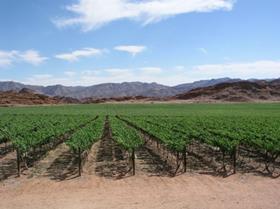
Global fruit and vegetable companies are among the worst prepared in the food sector to deal with future water scarcity, a new report has found.
The study, conducted by American sustainable business consortium Ceres, scored 37 major food companies on a scale of zero to 100 against four categories: overall management and actions to reduce water risks; direct operations; manufacturing supply chain; agricultural supply chain.
Chiquita Brands, which scored 20, and Fresh Del Monte, with a score of seven, were both rated within the list of six agricultural companies in the report.
The agricultural sector had an average score of 13.5, only beating the meat sector with a score of 10 – the packaged food sector (27) and drinks sector (26.5) both scored higher.
The study used publically available data on companies’ stewardship of water to measure how water risks affect the profitability and competitive positioning of these companies.
It comes as global food production, which uses 70 per cent of the world’s freshwater, faces challenges from water scarcity and water pollution, as a result of climate change, and aging water infrastructure.
Results showed that the majority of companies have begun to evaluate water risks in direct operations, but two thirds are still not evaluating water issues in supply chains, despite this being where the majority of risks lie.
Almost 90 per cent of companies were not using financial incentives to help farmers grow food more sustainably, and 90 per cent have not set goals to source all major crops from sustainable sources.
Only four companies – Coca-Cola, General Mills, Kellogg and Unilever – have time-bound goals to source the majority of their agricultural inputs from farmers using responsible water practices.
A small proportion of companies offered financial support to help growers farm more sustainably, such as offering premiums for more sustainably-grown inputs or interest-free loans for equipment.
To improve water management, the study recommended there is a board oversight and understanding of water risks. It also said companies should conduct robust water risk analysis from manufacturing facilities to the field, and work more closely with farmers to tackle water risks.



